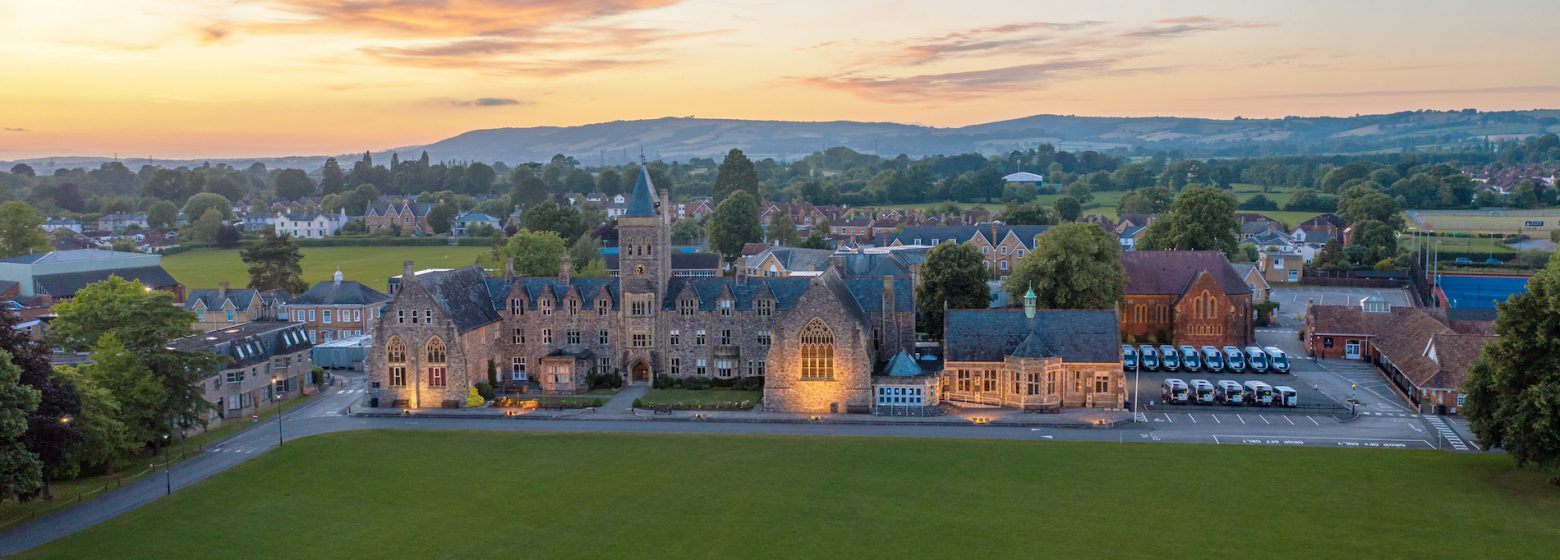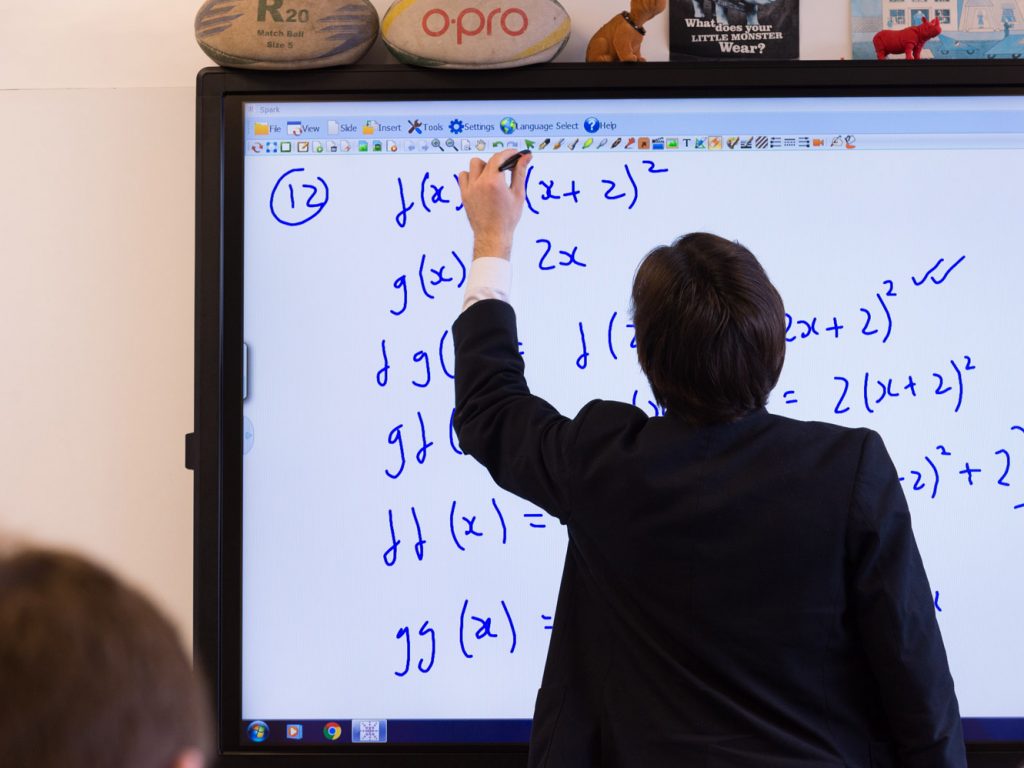I am often asked this question, how will being able to solve a quadratic equation or use differentiation to find gradients help you in the real world? My answer is always the same; Mathematics is not a body of knowledge but a way of thinking creatively about how you can solve a problem. It might be how you can schedule deliveries (Decision Maths); how effective is a vaccine (Statistics); can I get this ladder around the corner (IGCSE), or; is this 3 for 2 offer better than 30% off (Year 9). More importantly it’s the way of thinking that is necessary now to solve any problem; analysis, dissection; strategy to solution, appropriate for any walk of life. It is why Mathematics Graduates are paid a premium in so many careers and they have such vibrant social lives.
One of my favourite equations is e^2iπ=1, it has imaginary, complex, rational, irrational, transcendental, unitary, prime, circular, periodic and indivisible within it- find me a better way of summarising human life! Mathematics allows an insight into the very structure and heart of the life around us, stripped of the clutter and dissonance that is often heard in academic arguments. Mathematics can allow an insight into the basic structure of the universe, from the macro with Gravity and Newton first then Einstein to the micro, looking at sub atomic behaviour using quantum mechanics and the duality of Schrodinger and Heisenberg. And the messy intersection in blacks holes between the two. Newton imagined gravity was a string, Einstein said it was a heavy shot putt on a mattress, mass bends time!
One thing that all Mathematicians learnt is to value the apparently irrelevant, so many times has ‘useless’ mathematics become relevant from the discovery that 3x=6 has a solution to x2 x 1=0 which until the sixteenth century didn’t but then opened a whole new branch of analysis of the real (Joke) world. Indeed the historical evolution of maths is a fascinating study, reflecting the development of society from a simple need to count predators to survive (According to Jerry Fodor we all have a @maths module’ as a genetic part of our brain!) to commerce applications for Taxation through to abstract research ideas that have little obvious link with the real world. This evolution runs parallel to the evolution of religions that moved from deifying objects to modern day religions, the everyday moving to the philosophical!
Mathematics is equivalent to intellectual exfoliation, stripping away layers to reveal the structure and logic beneath a problem or topic. In using Mathematics to model the world it is possible to remove confusing static to allow a focus on the important underlying material. For any who doubt this look up the stress energy tensor, part of Einsteins General theory, a beautiful equation that gathers key ideas together to explain how gravity, energy and mass interact. Often in the history of Maths the irrelevant becomes relevant for example Game theory, Non Euclidean geometry (do the angles in a triangle add to 180 degrees?, Group theory Number Theory were all interesting pieces of abstract research until science, business and politics made them of interest to the ‘real’ world. So no piece of Maths is ‘useless’ whether from an intellectual standpoint to a real life application, you can never tell when research will be relevant!
In the UK we are unique as a culture in that we are proud of our inability to use mathematics. I am told and again by parents ‘I am not surprised that my son/daughter can’t do Maths, I was rubbish at maths when I was at school’. In other cultures not being able to use maths and the related thinking skills would be seen as akin to eating without a knife and fork. This is an attitude, together with the one minute mentality that sees too many give up a problem at the first sign of challenge, something I would love to change by encouraging persistence and resilience, together with a dash of creativity (‘How could I do?’). The culture is not the only barrier, there is a lack of numeracy that means an intuitive feel for number isn’t present, whereas students have a natural fluency with English as they are practising it every day with confidence.
So in summary, why is maths important? It stimulates your intellect and creativity, teaching problem-solving and imagination coupled with resilience and determination. It also has the added benefit that it can also improve your social life! Everyone should do Maths!
Ian Payne
Head of Maths





